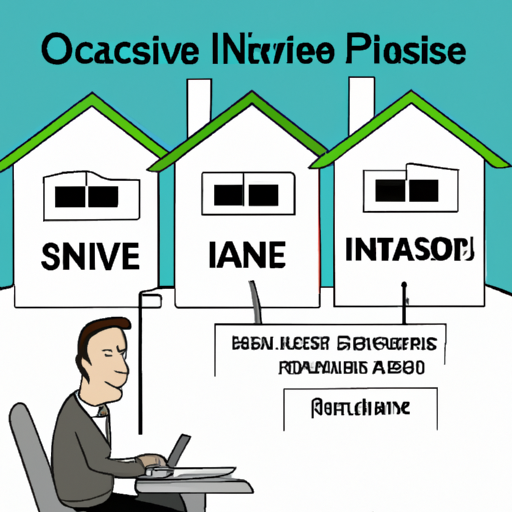
Passive real estate investing involves investing in real estate projects or properties without actively managing them. It is a popular investment strategy for individuals who want to earn passive income and diversify their investment portfolio. Here, we answer some common questions about passive real estate investing in a conversational and engaging manner.
What is the difference between passive and active real estate investing?
Active real estate investing typically involves buying a property, managing it, finding tenants, and handling day-to-day operations. On the other hand, passive real estate investing allows you to be a partial owner in properties or real estate projects without actively participating in their management. You can still earn a share of the profits, rental income, or appreciation on the property without the need for active involvement.
How can I invest passively in real estate?
There are a few different ways you can invest passively in real estate:
- Real Estate Investment Trusts (REITs): REITs are a type of investment that allows you to buy shares in real estate portfolios. They can be publicly traded on stock exchanges, making them easily accessible. By investing in REITs, you can earn dividends from rental income or property sales, while professional managers handle the day-to-day operations.
- Crowdfunding platforms: Some online platforms allow individuals to invest small amounts of money in real estate projects alongside other investors. This allows you to diversify your investments across multiple projects without the hassle of actively managing them.
- Real estate syndications: Real estate syndications involve pooling funds from multiple investors to purchase properties or projects. In this arrangement, professional operators handle the management while investors enjoy passive income and potential profits.
What are the advantages of passive real estate investing?
Passive real estate investing offers several benefits, including:
- Diversification: By investing in different properties or projects, you can spread your risk across various locations and types of real estate.
- Income generation: Many passive real estate investments, such as REITs or syndications, offer regular income in the form of dividends or rental payments.
- Tax advantages: Real estate investments often come with tax benefits like depreciation deductions or tax-deferred exchanges, which can help reduce your overall tax liability.
- Professional management: With passive investing, you leave the day-to-day management to experienced professionals who specialize in real estate, allowing you more free time for other pursuits.
What should I consider before investing passively in real estate?
Before diving into passive real estate investing, it’s crucial to:
- Do your research: Understand the investment vehicle you are considering, whether it’s a REIT, crowdfunding platform, or real estate syndication. Research the track record of the operators and their investment strategies.
- Assess the risks: Real estate, like any investment, carries risks. Consider factors such as market conditions, location, and the reputation of the sponsor or operator.
- Review the investment terms: Carefully read and understand the terms and conditions of any investment opportunity, including fees, lock-up periods, and potential exit strategies.
- Consult with professionals: Seek advice from financial advisors, lawyers, or real estate professionals to ensure the investment aligns with your overall financial goals and risk tolerance.
Passive real estate investing can be a great way to diversify your investment portfolio and generate regular income without the stress of active management. By understanding the different investment options available and conducting thorough due diligence, you can make informed decisions that align with your financial goals.